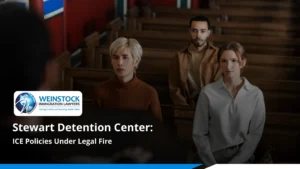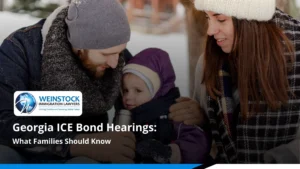Immigrants Pressured to Choose between Immigration & Public Benefits
What is the public charge rule?
The public charge rule requires immigration officials to exclude from permanent residence a person who is likely to become ‘primarily dependent on the government for subsistence.’ Since 1999, the government has narrowly interpreted subsistence to mean direct cash assistance or government-funded long-term care.How does the government want to change the public charge rule?
The Department of Homeland Security’s new proposal is a sharp departure from current guidelines, which specifically bar authorities from considering non-cash benefits, such as public housing and Medicaid, in determining a person’s eligibility for green cards and permanent visas. The proposed new rule would dramatically expand the definition of ‘public charge’ to include people using a wider scope of benefits, even if they are not completely dependent on those services. The expansion would go as far as to penalize people for using visa fee waivers.What are the implications?
In the proposed rule, factors that could negatively affect someone’s visa application include: Being younger than 18 or older than 61, having a medical condition likely to require extensive medical treatment, or a lack of a high school diploma or higher education. The DHS said it would weigh the ‘totality of the circumstances’ and meeting one of the factors would not necessarily bar someone from obtaining legal status.
But critics, including doctors, blast the policy for targeting poorer and unemployed Americans and those with health problems. Many social services agencies across the country are already seeing immigrants withdraw from public assistance programs. Instead, immigrants are taking additional jobs, either in the formal or informal job market, and moving in with other families. The new proposal is forcing families to choose between risking their immigration status or meeting their basic needs.
The Trump administration is predictable in its targeting immigrants and separating immigrant families. The government is trying to implement more convoluted policies designed to dissuade or deny people who would otherwise be perfectly eligible for permanent residence. Don’t wait to call and let our team of legal experts help you secure your future in the United States.
Related posts

Stewart Detention Center Lawsuits Challenge ICE Policies in Georgia Federal Courts
Summary The Stewart Detention Center in Lumpkin, Georgia, is at the center of ongoing legal challenges to ICE’s detention practices. Stewart is one of the

Immigration Bond Hearings in Georgia: What ICE Detainees and Families Need to Know
Summary Families often feel overwhelmed when a loved one is detained by ICE. Common questions include whether the detainee can be released, and what a bond of hearing

Habeas Corpus Victory: Karen Weinstock Wins Bond Hearing Rights for ICE Detainees in Georgia
Summary A federal judge in Georgia has restored the right to bond hearings for immigrants detained by ICE within the U.S. Immigration attorney Karen Weinstock
